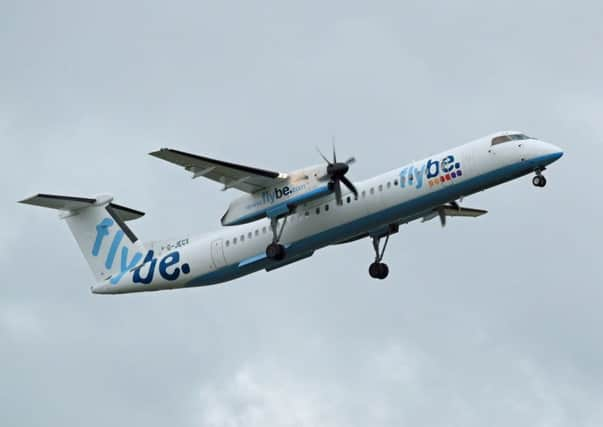UK Government’s Flybe rescue package better be worth it – leader comment


As the holiday firm Thomas Cook teetered on the brink of collapse last year, it turned in desperation to the UK Government, asking for a £150 million bailout.
Defending the decision to refuse, Boris Johnson warned of the “moral hazard” of using taxpayers’ money to prop up private companies. Indeed, there are suspicions that companies deemed ‘too big to fail’, like some banks in the 2008 crash, use this status as the ultimate form of insurance, enabling them to act more recklessly than they otherwise would.
Advertisement
Hide AdAdvertisement
Hide AdSo the decision to interfere in what is supposed to be a relatively free market to help an ailing company, such as regional airline Flybe, is a complicated one.
While Johnson said that it was “not for government” to save companies that get into trouble, his Government appears to have made an exception for Flybe by agreeing a rescue deal and also, controversially, considering a cut to air passenger duty (APD), a £13 charge on domestic flights with higher rates for longer ones, although the Highlands and Islands are excluded to make travel more affordable for those in the remotest parts of the country.
If there is a case for state intervention, it is that the airline, which flies to regional airports some of which are not served by any other firm, is strategically important to the economy and that allowing it to go under would have serious knock-on effects to other businesses and society in general.
This is essentially the judgement that was made by the Scottish Government over Prestwick Airport and the Ferguson shipyard.
However, the AA pointed out that the air industry already benefits from a relatively low tax regime compared to motorists.
And environmentalists were appalled at the idea of cutting APD, with Greenpeace pointing out that flying was the “most carbon-intensive kind of travel” and making it cheaper was at odds with the fight against climate change.
If the Government does this, then it will mean other sectors may have to cut emissions at a faster rate if the UK is to meet its international commitments. The UK target is to reach “net-zero” emissions by 2050, so there could still be some emissions, but these would have to be offset by tree planting and other measures that remove carbon from the atmosphere. So, given that helping Flybe will cost the taxpayer in more ways than one, it better be worth it.